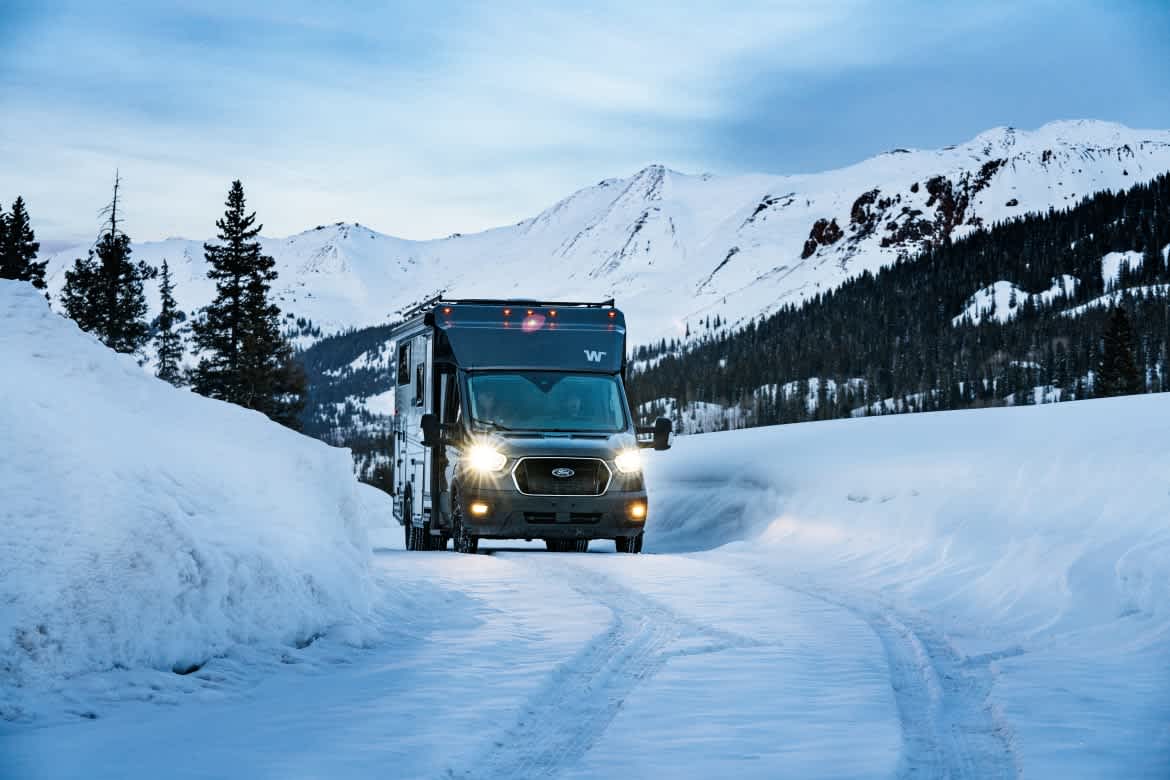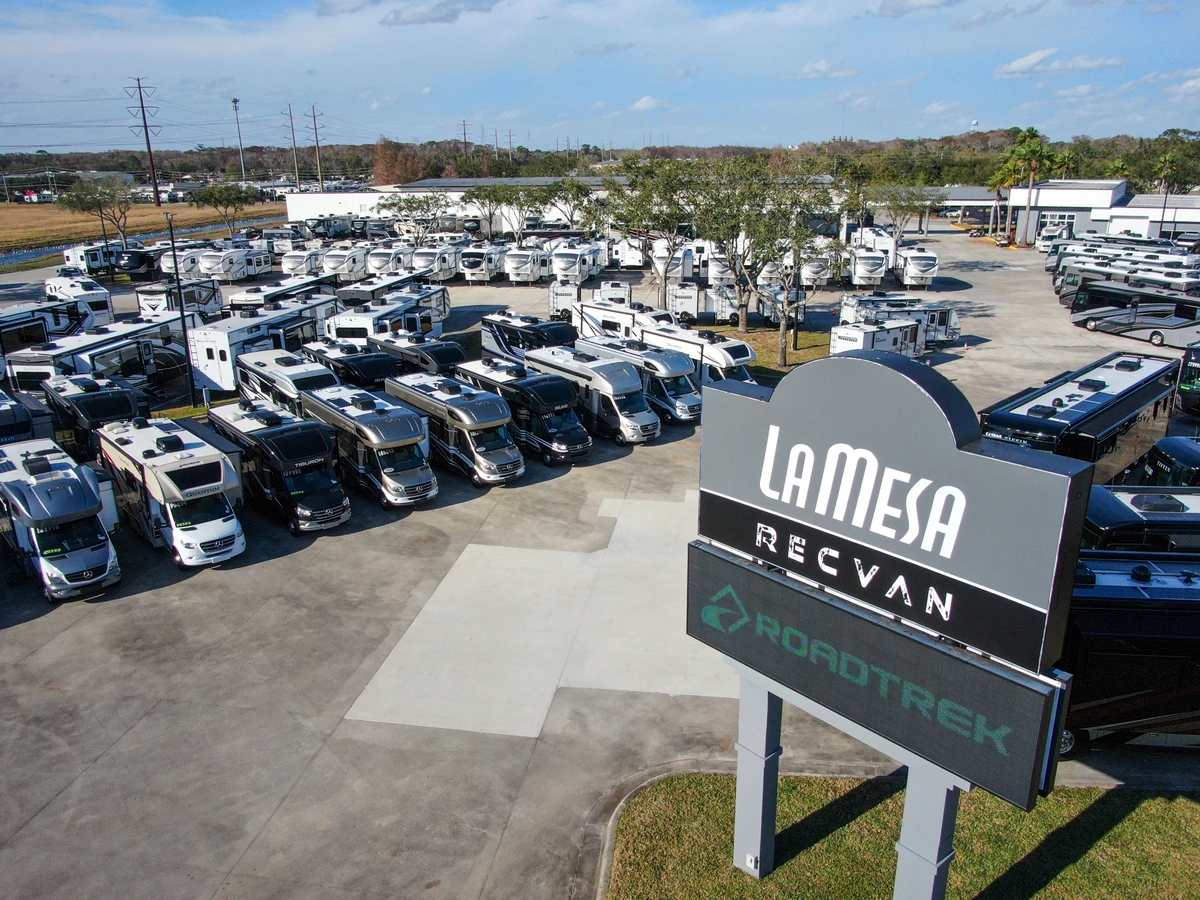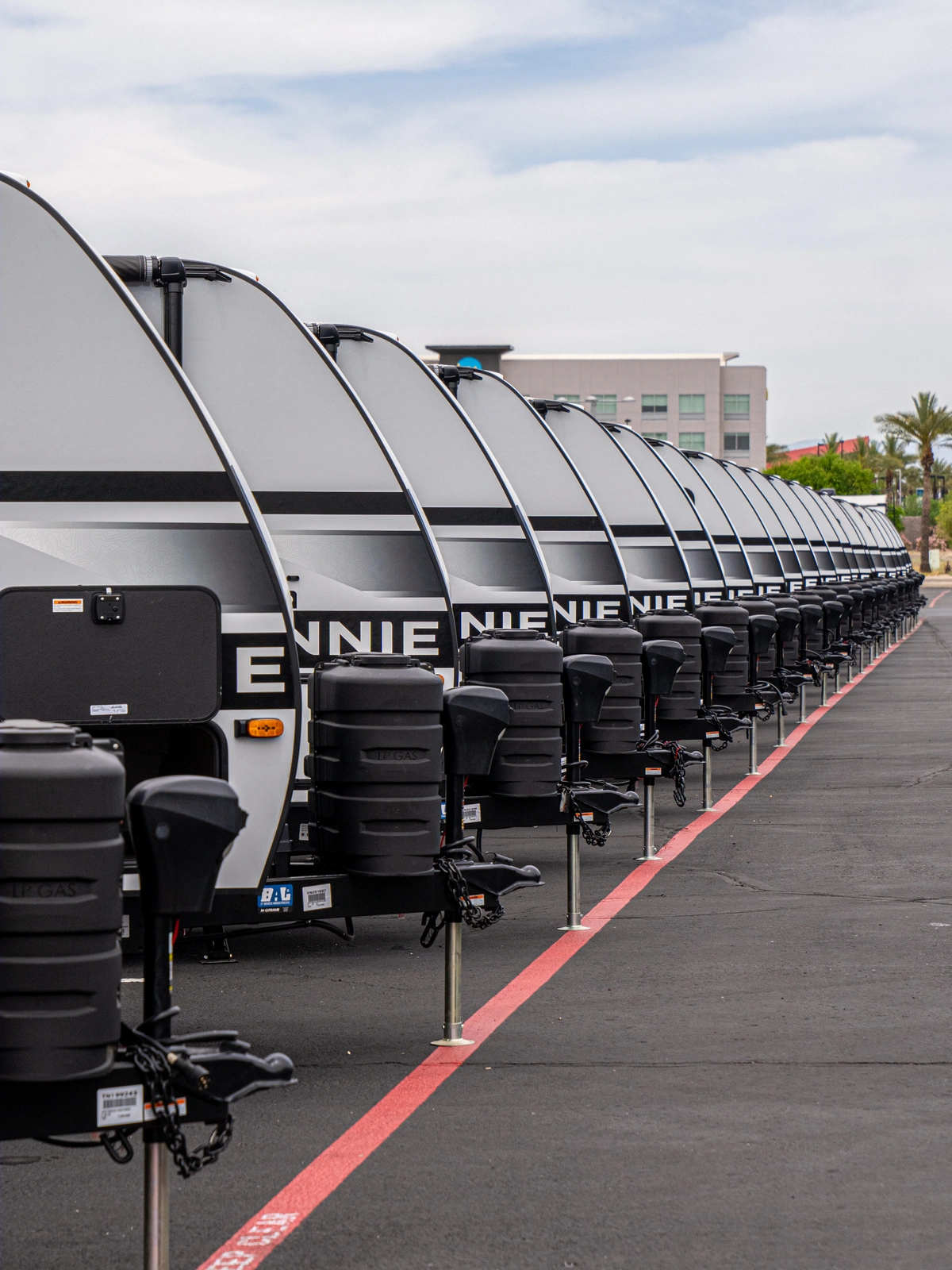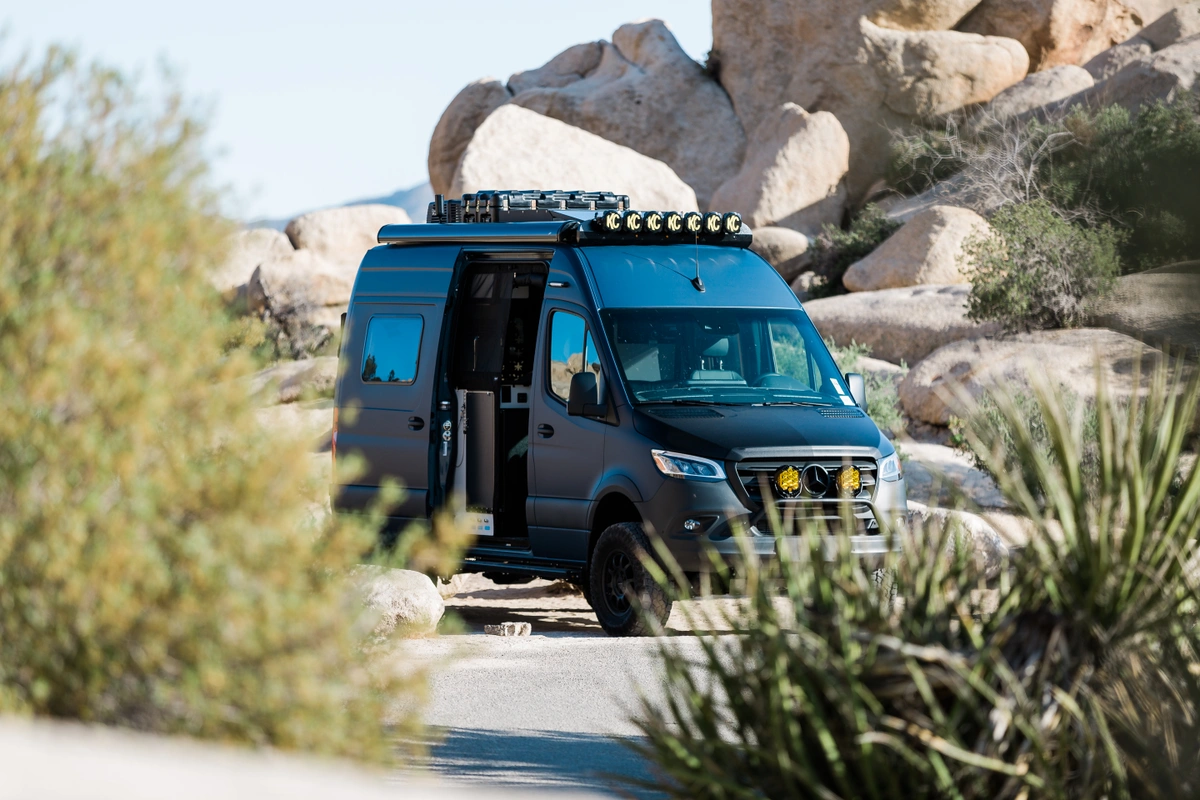There's nothing quite like hitting the open road in your RV and seeing the country. Before you take off on your next RV road trip, it's important to be aware of the potential dangers associated with severe weather such as thunderstorms, high winds, snow, tornados, and wildfires.
Severe weather can strike at any time and when you're RVing, making it incredibly important to have a plan in place for how to stay safe in hazardous weather conditions before you hit the road. In this blog post, we'll share some tips and resources for staying safe while RV traveling in severe weather to help. Check out the details below.
Guest Post By Scott Russell
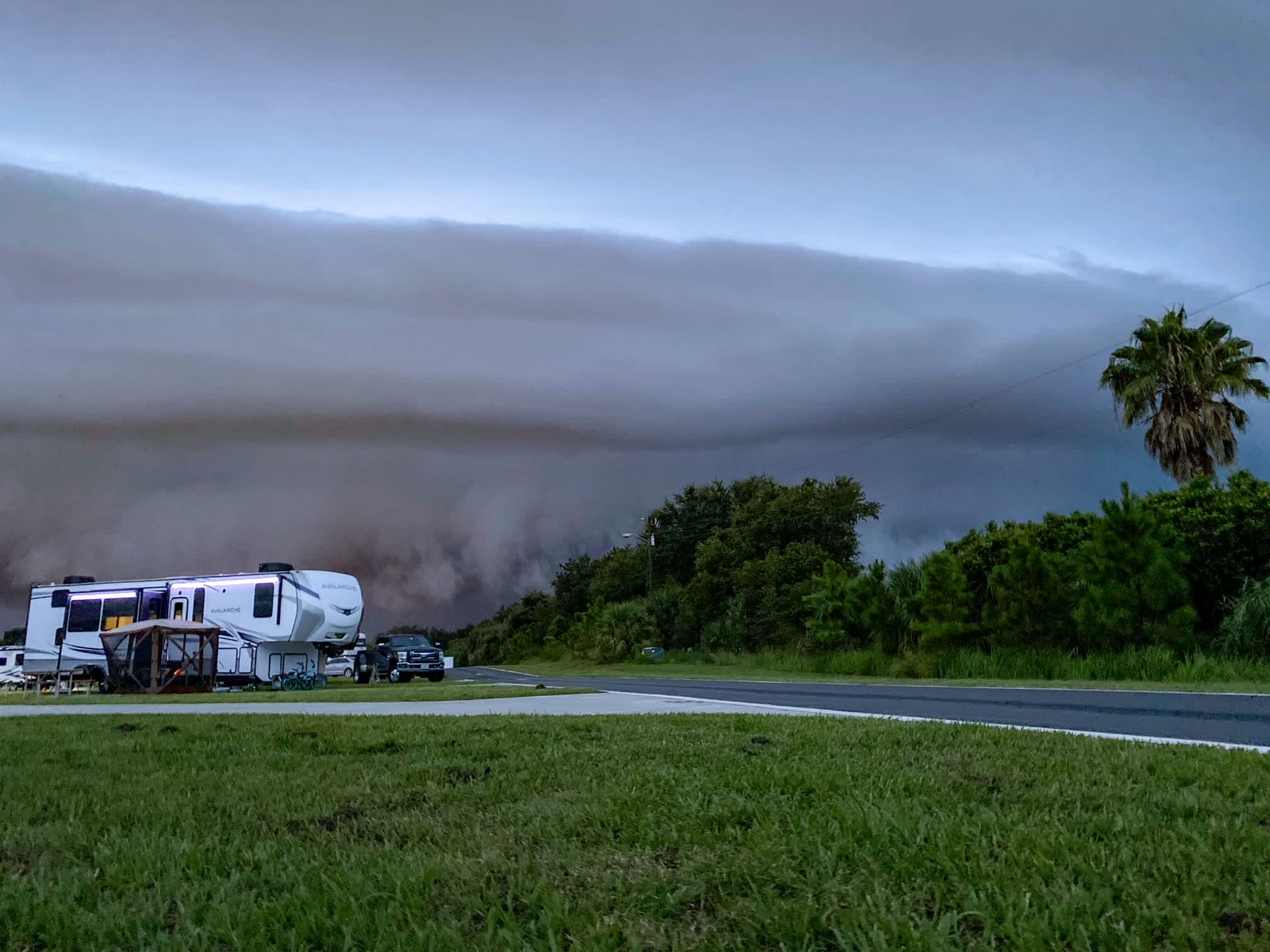
RVing in Severe Weather is Different than Being in a House
One of the most important things to remember when RVing in severe weather is that your RV is more exposed to the elements than a house would be. This means that you need to be especially aware of things like flooding and strong winds when severe weather hits. Make sure that you secure any loose items on your RV before a storm hits, and be prepared for strong winds by putting in awnings and making sure that all of your hatches are securely closed.
One of the challenges of RV traveling in bad weather conditions is simply being unfamiliar with the area. Often an RVer doesn't know what weather is common to a location. It is very helpful to ask the campground some weather safety questions when checking in. Find out what county you are located in which is important to know when listening to local weather alerts. Find out if the area has tornado sirens. Also, ask where the campground shelter locations are located in case you need to leave your RV for a more secure structure.
It's important to note that some of these suggestions talk about rerouting or evacuating with your RV however, your personal safety is always the most important. Insure your RV with a great policy but leave it behind if you have to. You and your family are irreplaceable.

Helpful Weather Apps For RV Travel
There are a variety of different weather apps out there that can be helpful for RVers. Some of our favorite general weather apps include The Weather Channel, which allows you to see real-time conditions for your current location, AccuWeather, which gives you hour-by-hour forecasts, and Storm Radar, which gives you detailed radar information. These apps can help you plan your travels and know what to expect from the weather along the way.
It's important to know that a weather app is sometimes only as useful as the alerts that you have set. Make sure to set up alerts for tornadoes, lightning, freeze warnings, fires, and floods. For example, a lightning alert is important when you are out on the water. While a freeze warning is an important indication to an RVer to disconnect the water to the RV or to turn on the furnace to help protect pipes. You may not remember to check weather apps often, but the alerts you set can let you know about important issues as they pop up.
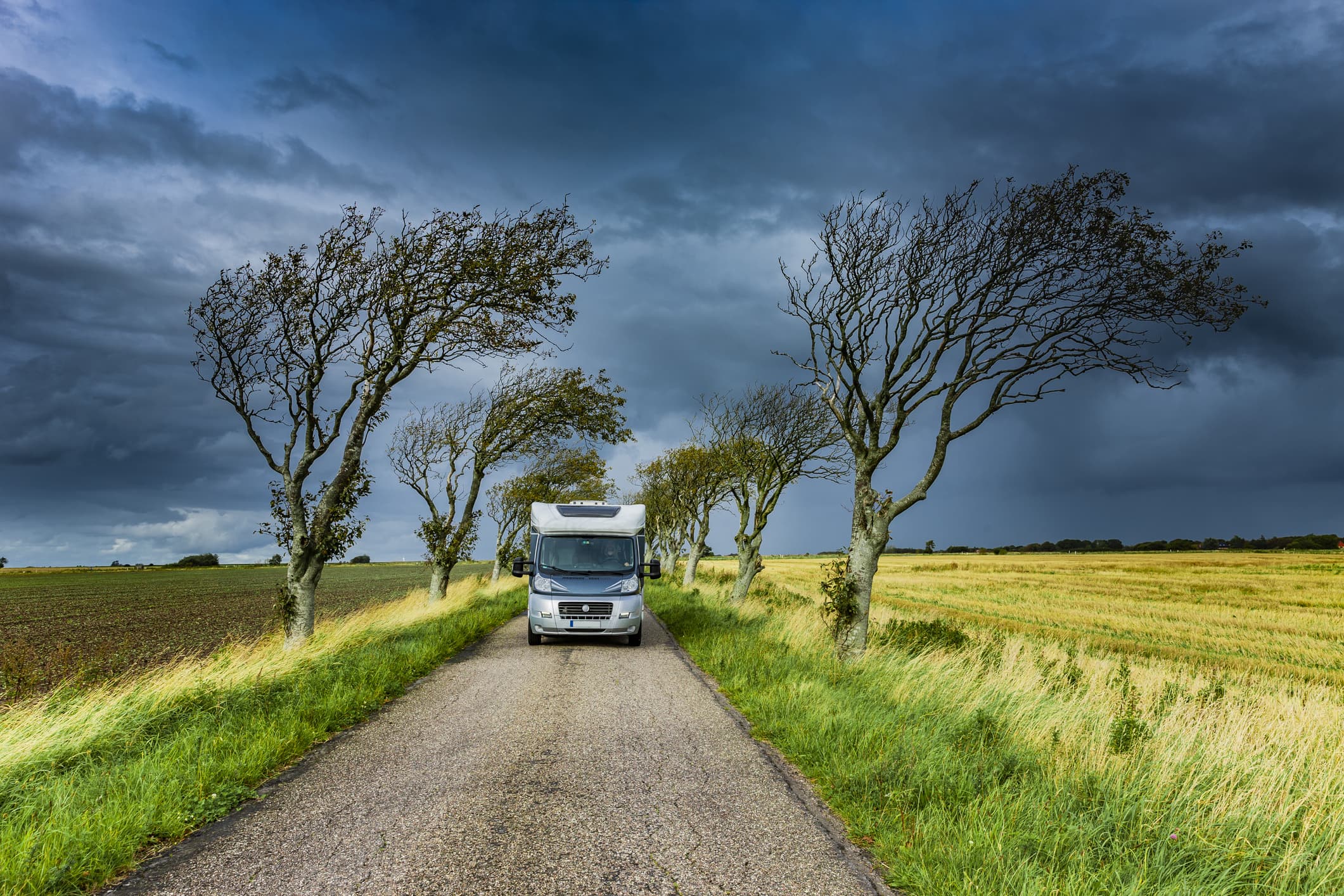
Wind Precautions in an RV
As we mentioned before, the wind is one of the biggest things to be aware of when traveling in an RV during severe weather. Strong winds can cause all sorts of problems for RVs, from knocking over trees and power lines to flipping RVs over entirely. That's why it's so important to take precautions against high winds when severe weather is forecasted.
Always check the wind forecast for travel days of your current location and where you are heading to. If really high winds are forecast, consider changing your travel plans. Driving an RV in high winds can be a safety hazard and it's always better to be safe. Sometimes delaying your travel a day or rerouting can be an option to avoid high winds. Our favorite weather app for wind is Windfinder.
It's also important to keep an eye on the wind to protect your RV awning. High winds can rip the awning or bend the awning arms creating an expensive repair. Sometimes storms pop up quickly. We have a rule at our RV that we always put in the RV awning before we leave the campsite or when going to bed.
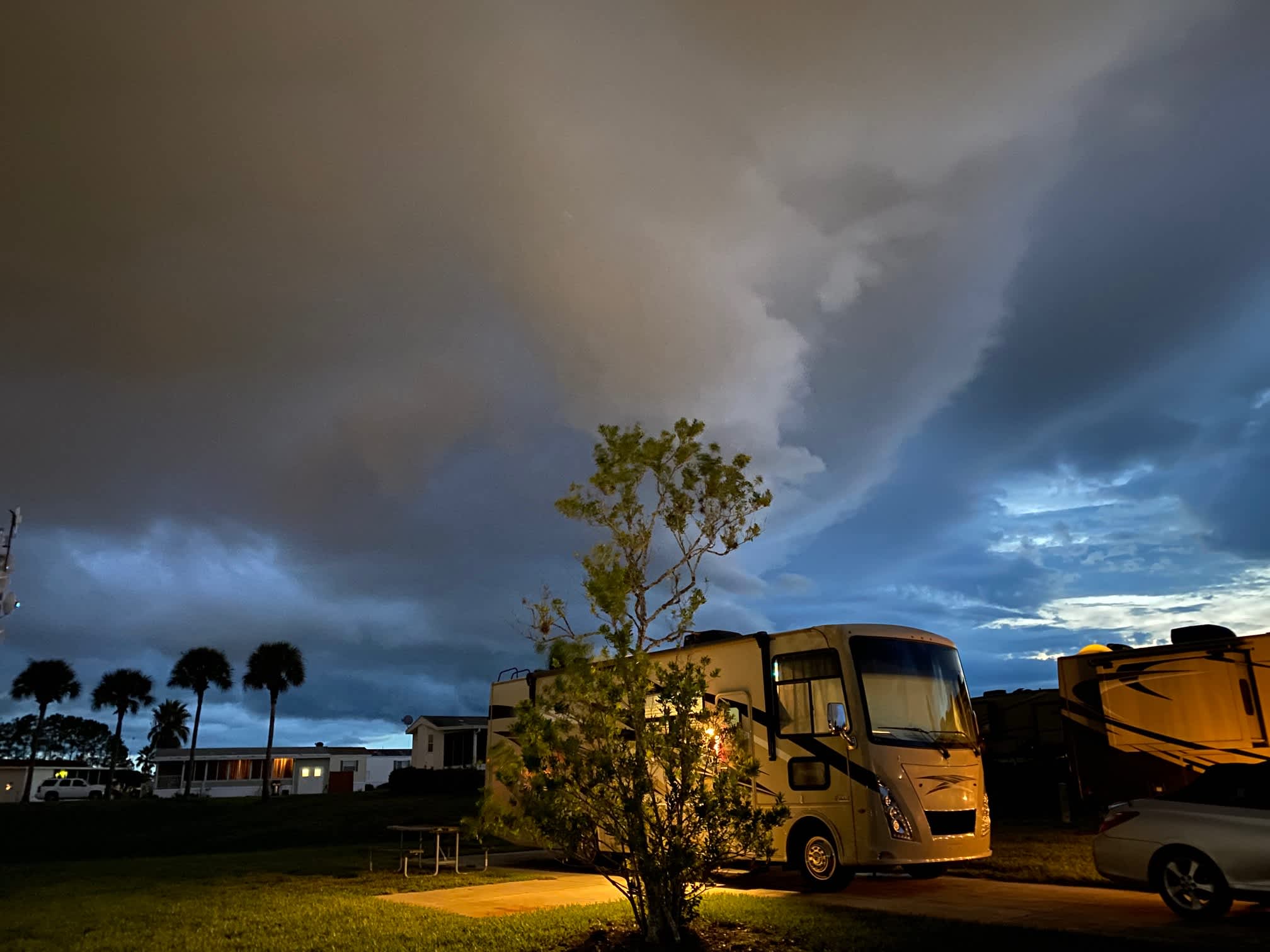
Tornado RV Safety Tips
We mentioned earlier that it is important when you check into a campground to find out a little information about the area. Tornados are the most important reason to know what county you are located in and the location of the campground shelters. They pop up quickly so often you won't have a chance to ask these questions during a storm. You need to have the knowledge ahead of time so you can take action if needed.
Sometimes there is a forecast that tornado conditions exist ahead of time. On these days, make sure to secure everything outside at your campsite and keep an eye on the weather. It's important to understand the difference between a tornado watch and a warning. A tornado watch means that conditions are favorable for a tornado to form. This is simply a heads-up to secure items and watch the weather closely. A tornado warning means that you need to take cover immediately because a tornado is either on the ground or there is a radar-indicated rotation.
Wildfire Travel Safety
Wildfires are an extreme hazard for anyone in their path, but for those of us who enjoy RVing, they can pose a unique set of challenges. If you find yourself in the vicinity of a wildfire, here are a few safety tips to keep in mind. Always check the local conditions before you head out. If there is an active fire in the area, it's best to find another destination. Even if there isn't an active fire, be aware of the potential for rapidly changing conditions. Pay attention to weather reports and alerts, and be prepared to change your plans if necessary.
If a wildfire does begin in your area, consider leaving right away. Check with local authorities for up-to-date information on road closures and evacuation routes. If you are asked to evacuate, do so immediately. Wildfires can move quickly and unexpectedly, so it's important to stay ahead of the game.
To find up-to-date fire location information, consider signing up for CAL FIRE's text alerts at https://plan.readyforwildfire.org/. Another helpful alert system is NASA's Fire Alert Subscription. You can sign up to receive e-mail alerts from NASA Fire Information For Resource Management System or FIRMS. If you are also looking to add a wildfire app, check out Fires - Wildfire Maps and Info or Firespot: Wildfire App.
When you're on the road, take care to avoid areas that are particularly vulnerable to fire risk. If possible, stay on paved roads and avoid driving through tall grass or brush. And always be vigilant about disposing of smoking materials properly. Campfires are also a large concern for wildfires. Check to see if they are allowed in your camping area and always put them completely out with zero smoke before going to bed or leaving.
Finally, if you find yourself in the path of a wildfire, take steps to reduce smoke inhalation. Wildfire smoke is full of toxic chemicals that can be hazardous if inhaled. We highly recommend traveling with an air purifier. Even fires hundreds of miles away can produce a lot of smoke at your campsite. Having an air purifier can help improve the air quality in your RV. If you don't have an air purifier, then putting on an N-95 mask is also helpful.
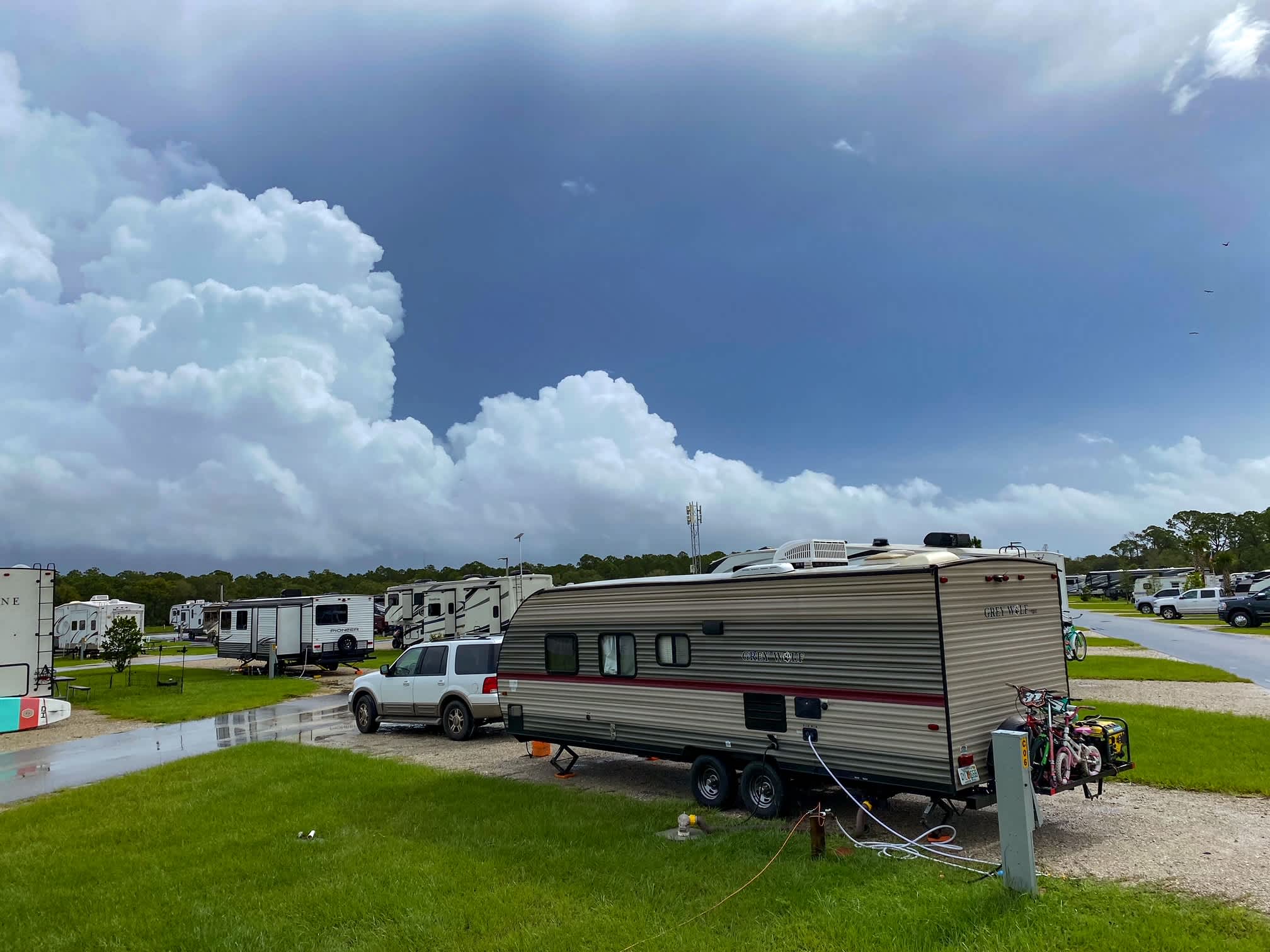
Hurricane RV Safety
If a hurricane is forecasted for your area, there are some steps you need to take to be prepared. First, you must decide if you are going to evacuate. It's always best to head inland away from the coastal storm surge, but sometimes leaving the state entirely is necessary. If you do evacuate, leaving early is always best. Make sure you have plenty of gas, water, and food as you may need to sit in long lines of traffic.
If you are in an area that you feel is safe to stay in your RV, be sure to secure all loose items outside. Consider locating your RV far from trees and bodies of water. Have full tanks of gas and fill your generator if you have one. Also, fill your RV propane so you can run your refrigerator and cook without power. Putting in RV slides also helps with high winds.
Expect potential flooding, high winds, and power loss. You may not be able to leave for a few days so gather plenty of water, food, and supplies to last throughout the storm. Also, locate the nearest shelter just in case. Some RVers that stay prefer to secure the RV and spend the storm in a hotel. If you decide to go to a hotel, make your reservation as soon as possible because they are often booked solid during hurricanes.
Hurricane forecasts change frequently and it's helpful to keep updated on the predicted path. We have used these weather apps for hurricanes: Clime: NOAA Weather Radio Live, Windfinder, and National Hurricane Center Data. Hurricanes can be very hazardous in an RV so always consider your safety first!
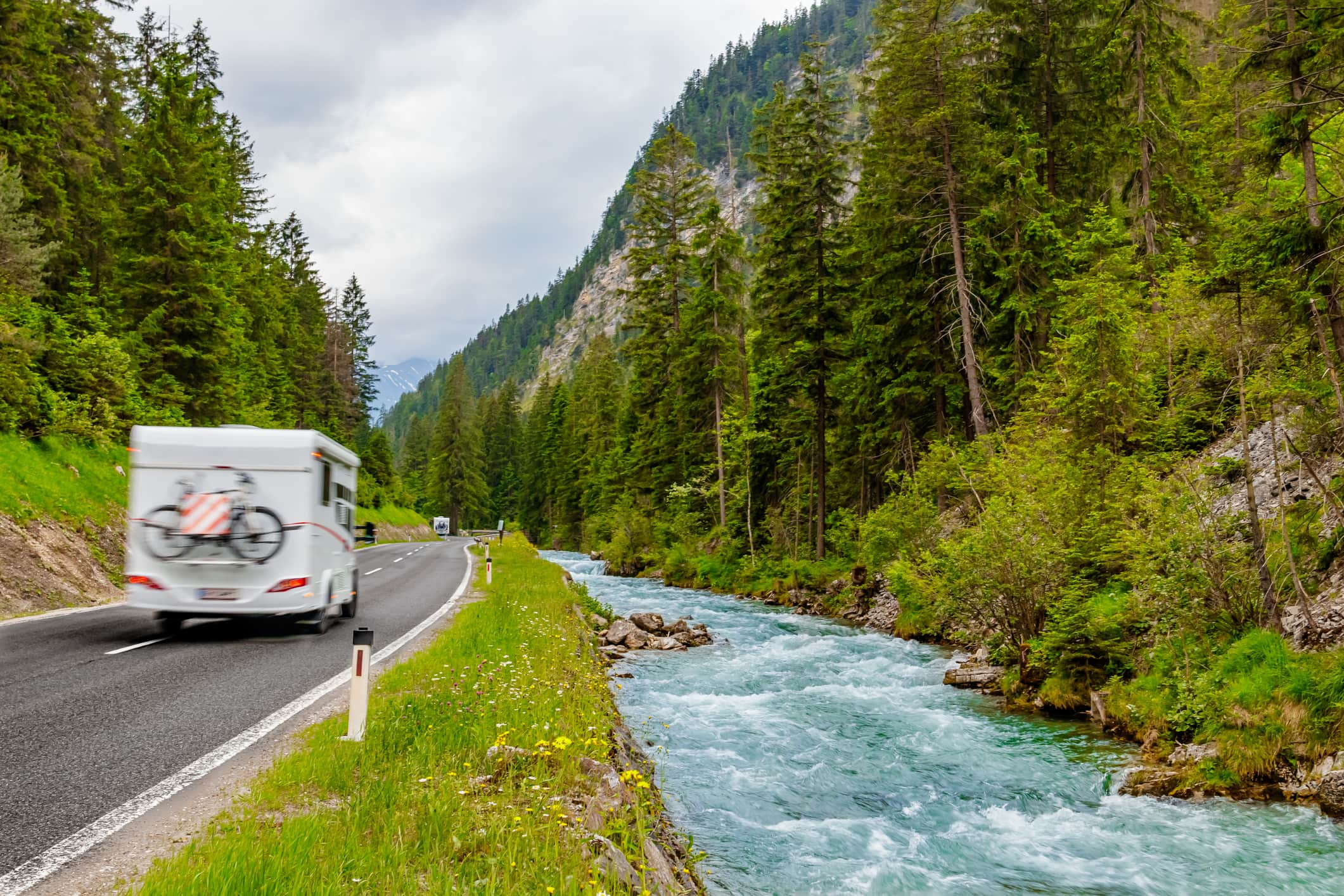
Flooding Awareness in an RV
Flooding is another danger that RVers face during severe weather events or when camping near a body of water. One of the biggest risks is that water rises very quickly and sometimes makes it difficult to leave once it has started to flood an area. If you camping near a body of water watch the weather forecast closely and ask the campground if the area you are in is prone to flooding. It's always best to evacuate to higher ground as early as possible. It's hard to know if flooding will be an issue until it's too late sometimes so being safe is always better than being sorry.
Now that you know how to stay safe while RVing in severe weather, you can head out and enjoy your next trip. Make sure to download some helpful weather apps, take wind precautions, and be aware of tornado safety tips. And most importantly, always keep an eye on the forecast so you can avoid potentially dangerous situations. Have a wonderful and safe trip!
Looking for a new RV? La Mesa has everything you need to hit the open road on an RV adventure. Stop by and check out their amazing selection today!
Scott, his wife, Van, and their 12-year-old daughter Sissy have traveled full-time in their RV for 7 years. They have worked and homeschooled on the road through 42 states so far. They blog about RVing tips, travel destinations, and the full-time RV lifestyle on their blog, TheAdventureDetour.com. They are also RV content creators @theadventuredetour on Instagram, TikTok, and Facebook. They love connecting with RVers so be sure to reach out to them and say hi!
